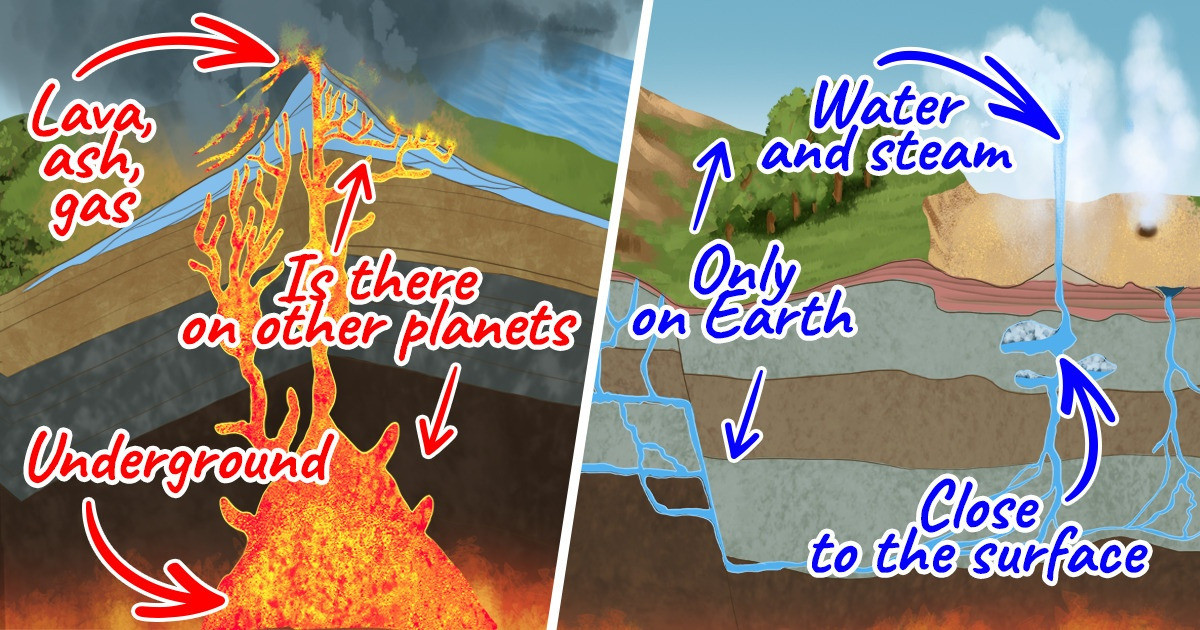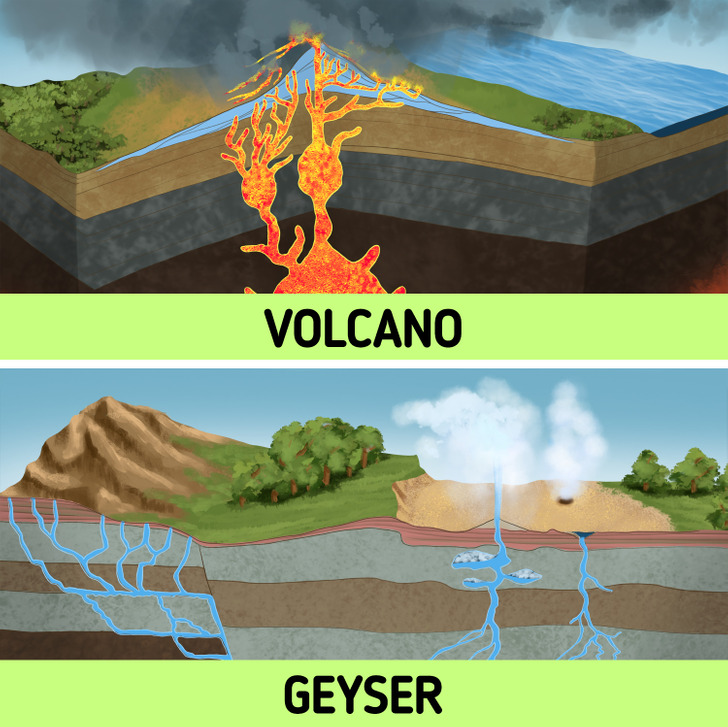How Volcanoes Are Different From Geysers

5-Minute Crafts is telling you how volcanoes are different from geysers.
A volcano is a geological formation that looks like an opening in the earth’s crust that lets hot lava, ash, and gas come out from underground and rise below the surface. A volcanic eruption can be very explosive, with active ejections of lava and ash high into the sky, or it can be quieter.
Most volcanoes form along the boundaries of the earth’s tectonic plates — at the site of their break or collision. They also occur in so-called “hotspots” or places of high magmatic activity, where magma is pushed through the earth’s crust to the surface, forming a volcano.
Scientists claim that volcanoes are not only on Earth. They would actively erupt on other known planets in the past, and there are still active volcanoes in some places in our solar system.

A geyser is a spring made from hot water and steam and ejects them from an opening on the Earth’s surface. Some geysers are capable of ejecting thousands of gallons of boiling water to a height of several hundred feet.
Geysers are a rare natural phenomenon. In order for a geyser to erupt, several conditions must coincide — there must be a reservoir with a sufficient amount of groundwater in the thickness of the earth’s crust, hot stones near the reservoir, and cracks on the surface of the earth.
Just like a volcano, a geyser depends on a strong heat source underground, but a geyser is a phenomenon that happens almost on the surface of the earth. It erupts when shallow groundwater becomes very hot, partially turns into steam, and is expelled upward through an opening in the earth’s crust.
Though the mechanism of volcanoes and geysers work is alike, the first ones can be much larger than the ones that follow. Their eruptions are less frequent and turn out to be much more dangerous and destructive. Geysers erupt much more often and are inferior to volcanoes in terms of the scale of the eruption.
Geysers almost always happen in regions close to volcanoes, but volcanoes don’t require a neighborhood of geysers and can exist without them. Also, unlike volcanoes, geysers have not yet been discovered on other planets, although geyser-like activity has been recorded several times.